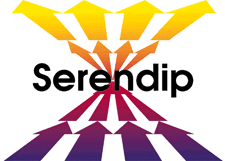
 |
Education and Technology:
|
|
Web as Interactive Conversation (forums)
Theory (from Education and Technology Directory Page): |
Serendip's Experiences:
Serendip's Commentary:
The web as an authoring environment for teachers and students has some similarities to on-line forums, but relates as well to significant issues well beyond those of forums. As with forums, students and teachers can think of their activities not only as meaningful to themselves but as significant contributions to a larger process of developing understandings, and so as meaningful in a the broader world community. Beyond this, however, teacher and student web authoring challenges many of the traditional presumptions that meaningful knowledge needs to pass through an authorization step. And since such authorization steps are most commonly discipline-based, it furthe challenges conventional categories of knowledge and encourages new knowledge alignments.
An alternative to traditional authorization steps is to allow material to be evaluated by a distributed and public process, ie to make materials available freely with a presumption that the quality of materials will become clear as a natural outcome of their use. Here, as in thinking about the web as an information resource, it needs to be acknowledged that a requirement for achieving the benefits of a greater diversity of information is that information users become more thoughtful and critical in their use of materials. This will be facilitated by making students and teachers both consumers and producers, so they have a stake in the process in both capacities.
Serendip's Pedagogical Musings:
One distinctive feature of student/teacher web authoring is the need for some degree of technical familiarity with the web and competence in skills needed to create materials for the web. To most effectively exploit the potentials, teachers and students both need to be comfortable with a necessary set of technical skills. Class time can and should be committed to developing such skills. This can and, ideally, should be done not as a distinct process of skill-learning but rather by creating assignments in which skills are developed as a necessary part of other activities. Such skills can be facilitated by and contribute to becoming a critical evaluator of web materials.
Attention needs to be given in both use and production of materials to differences in motivations and abilities at different ages and in populations of students from different backgrounds. This can, though, to some extent be handled by letting students take the lead in web-authoring since they are likely to produce materials accessible to others of similar age and background. Here too, the development of skills as a producer can and will facilitate development of consumer skills.
Student/teacher web authoring is a growing but still underdeveloped aspect of web use and knowledge production, and is likely to go through a number of future transformations before a clear picture emerges. At the moment, there remain important unsettled issues about not only the degree of authority such materials have but also how they can be easily and appropriately categorized and used, how stable they are, and what "authorial" entitlements and prerogatives should be associated with them. Examples, exercises, and additional resources:
Further Questions:
Can one imagine a teaching environment in which most materials used are those of teachers and students created in the activity of teaching/learning? What would would be the advantages and disadvantages of such a teaching environment?
How could one most effectively intersect traditional "authorized" materials with student/teacher authored material on the web?
Is the instability of student/teacher web authoring a problem or an aspect of knowledge production that needs to be more widely acknowledged?
How might student web authoring intersect with "writing instruction"? [an error occurred while processing this directive]